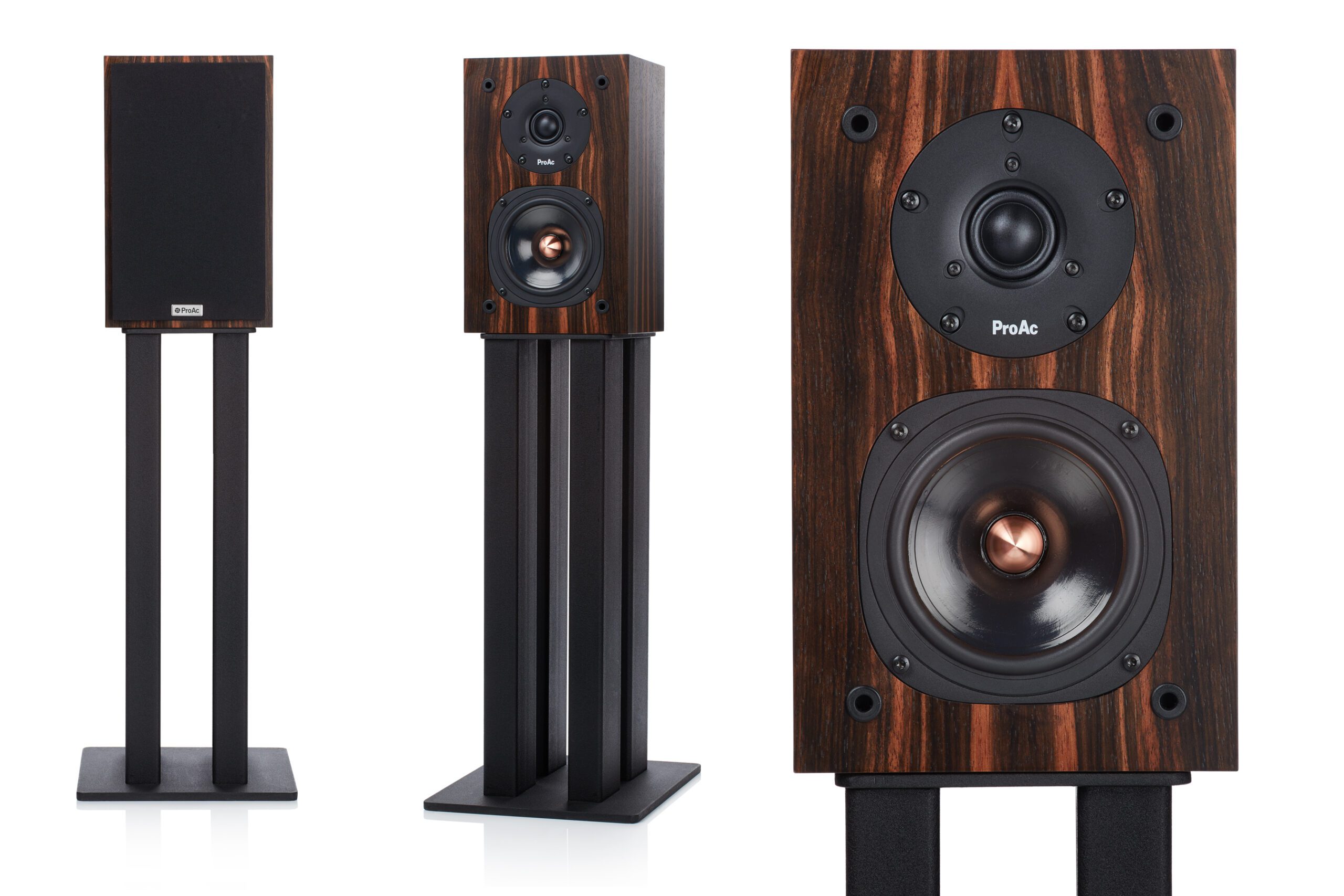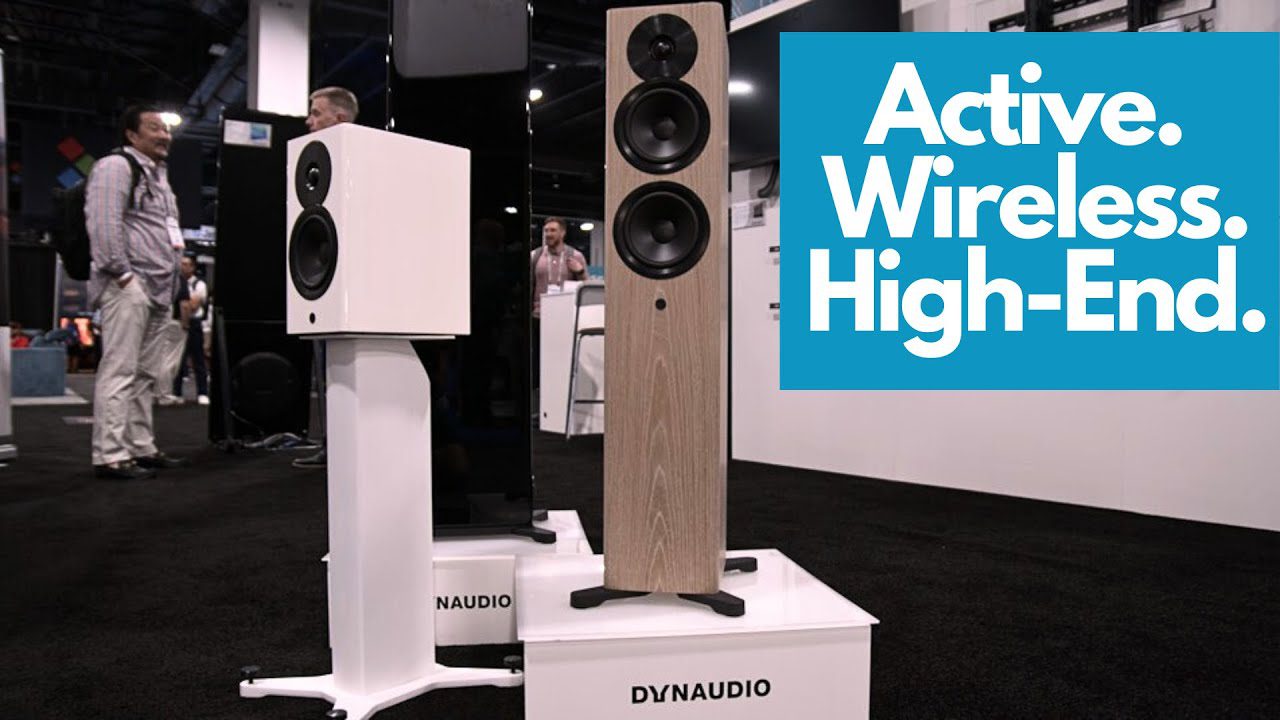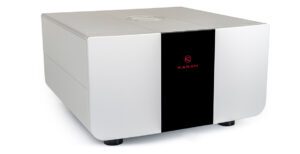
Fostex is one of those brands that we’ve all heard of but rarely see. This is primarily because despite having been around for quite a while (over 60 years in fact) it is best known outside of Japan as a ‘pro’ brand. In its home market, Fostex has a wide range of passive loudspeakers for domestic use: the company started out as a drive unit manufacturer, so it is able to develop its own ideas in this field, something that applies to the PX5-HS.
This two-way bookshelf is an active speaker, meaning that it has built‑in amplification with a crossover that comes before the amps. This is what gives active speakers their advantage, especially since by connecting a dedicated power amp to each drive unit you significantly improve its ability to control that driver. Active is the standard approach in pro audio where Fostex has a strong foothold, and where the need for controlled power is apparently higher even if its quality may not always be the same standard we expect in the home.

The PX5-HS combines a 132mm aramid fibre based mid/bass driver with a laminated urethane film, and a red polyester 25mm dome tweeter. There are twin reflex ports firing forward, a metal back panel with a two-in-one input for XLR and 1/4” jack, plus RCA phono connectors, and a rotary controller that can be used to adjust volume and tonal balance. Switch either function on and you get green lights to aid set up. When these details are combined with the contoured front baffle, the whole thing has clear pro audio overtones, and Fostex has a very similar pro model called simply PX5 that is rather less expensive. The HS version has had its amplifier tuned, the rear panel is designed for better sound, and the controls have been made more intuitive. These changes have resulted in an extra 20kHz of high frequency extension and lower distortion figures.
Under the rear panel there are amplifiers for each driver as well as a crossover of presumably DSP variety, the amps are Class D types and specced to deliver up to 35 Watts to the main driver and 18 Watts to the tweeter. What seems to be missing is an easy means for users to connect their computers or portable devices; at this end of the market, the most likely customer would appear to be the desktop music lover who wants a compact yet capable speaker without the extra hardware of a DAC/preamp in between. But, I guess the keen computer audiophile will have something like that already.
When powered up, the PX5-HS illuminates a Fostex logo on the front that remains dark on the back unless you switch in the volume or tone controls for adjustment. Finding the right volume level depends entirely on the connected source, I started by using balanced cables to hook them up to a Music First Baby Reference V2 passive controller and had to turn onboard volume to max. But even then dynamics were limited and the bass lacked control, so they clearly need active drive of some sort. To achieve this I bypassed the Music First and plugged the XLRs directly into a Resolution Audio Cantata DAC/streamer with volume control. This proved rather more successful, and the volume on the speakers had to be curtailed to a point where I could use most of the output on the Cantata. The illumination on the Fostex volume controls makes it easy to set both speakers to the same level, but you wouldn’t want to use them as your main level control.

Now the bass had some power and depth. The drumming on Patricia Barber’s ‘Company’ [Modern Cool, Premonition] had real punch, and the quality of the playing overall and the exact nature of Barber’s urbane lyrics became apparent. I also rather enjoyed an Infected Mushrooms track called ‘Avratz’ [Converting Vegetarians, Yo-Yo], a synth based electronica track with excellent dynamics, bandwidth, and full-scale imaging. The Fostex made a good stab with the first two, but struggled with the track’s full-scale imaging – small speakers are not necessarily limited in this respect, but neither is it a given it seems.
A more purist recording, Doug MacLeod’s Exactly Like This [Reference Recordings] with its acoustic instruments and live sound, reveals that dynamics could be stronger. This is a great recording with very little limiting, but you don’t get its full range here. You do appreciate the band’s cohesiveness, however, and the fact that MacLeod is a natural bluesman. The strengths of the PX5-HS lie in its control of the bass, which is better extended than a passive of similar size and remains tight and tuneful under fire; even heavy bass work outs could not phase it. But good bass is also a lot of fun: playing Yello main man Boris Blank’s ‘Electrified’ (Electrified, Polydor), also electronica, you can feel the kick of the bass ‘drum’ and luxuriate in its power. The low end remains clean so that the voice above it is not smeared or masked in any way. .
What is more challenging is full scale orchestral work where the lower strings are fine, but where the higher ones lack finesse. Combined with the limited dynamics, this means that pieces like Beethoven’s 7th don’t have the power and glory that they deserve. Piano pieces are more successful thanks to the speaker’s reasonable timing skills, and chamber works retain their charm if not the full dynamic envelope.
Out of interest I contrasted the PX5-HS with a Rega Brio-R (£548) amplifier and Q-Acoustics 2010i (£120) speakers, the latter are smaller than the Fostex, but the sound this pair produced was notably more relaxed and expansive. It didn’t have the extension and power in the bass, but it did produce a much more open sound. In an effort to get more from the Fostex I used an ATC CA2 preamplifier and this did prove beneficial; it cleaned up the treble to a useful degree, and although it didn’t extend the bass any further, it seemed to add gravitas to it. Since the preamplifier made the PX5-HS a more enjoyable and rounded speaker, it reveals quite clearly the benefits of partnering electronics to drive long interconnects. I got quite distracted by a fairly dense album, Taylor McFerrin’s Early Riser [Brainfeeder], which combines electronics and keyboards to great effect. As this is the third electronica album to make a positive impression with this speaker, one has to wonder if there is a connection: could this type of monitor be what is used by the producers of such music?
If you are looking for a compact solution to use with a computer or in a second room, this Fostex has a lot going for it. The amplifiers aren’t the most powerful around, but this is a low price for an active speaker from an established brand; something has to give. The Fostex is a critically revealing speaker in terms of source quality, which means you will need a decent DAC or preamplifier to get a sweet result. The PX5-HS sounds like it would work with one of the slew of DAC/preamp/headphone amps that are so popular right now, so long as they have a sweet top end and some driving power. And equally important, the Fostex looks good, the combination of pro style baffle with veneered sides and rear is undoubtedly cool.

Technical Specifications
- Type: Active 2-way, two-driver stand-mount monitor with front-ported bass reflex enclosure
- Driver complement: One 25mm soft dome tweeter, one 132mm aramid fibre mid-bass driver
- Rated power: Mid-bass 35 Watts, treble 18 Watts
- Frequency response: 50Hz – 50kHz
- Crossover frequency: 2.5kHz
- Input impedance: XLR 20kOhms, RCA 10kOhm or more, 1/4inch jack 10kOhm or more
- Dimensions (H×W×D): 280 × 180 × 210mm
- Weight: 5kg/each
- Finishes: High grade wood-grain
- Price: £649
Manufacturer: Fostex International
URL: www.fostexinternational.com
Distributor: SCV Distribution
Tel: +44 (0)3301 222500
Tags: FEATURED
By Jason Kennedy
More articles from this authorRead Next From Review
See all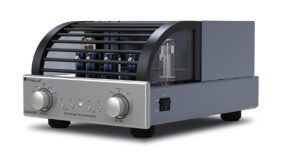
PrimaLuna EVO 100 phono preamplifier
- Apr 22, 2024
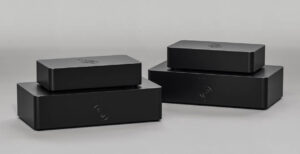
Reiki Audio SuperSwitch Master Pro + Servant Pro
- Mar 27, 2024
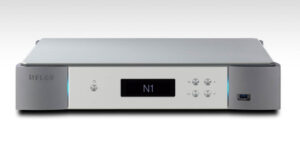
Melco Audio N1-S38 music server
- Mar 27, 2024

